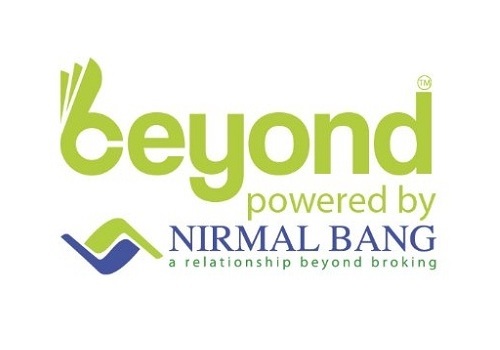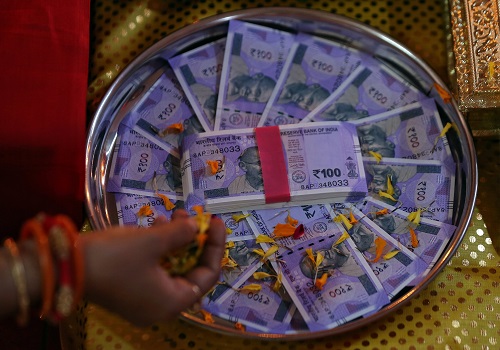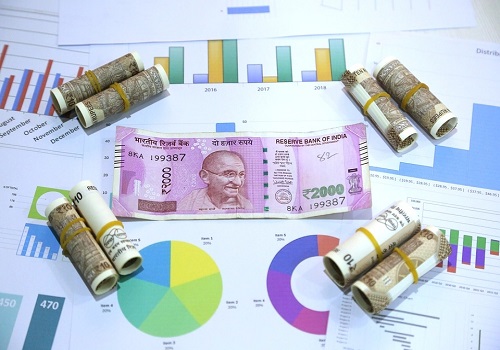Key indices snap four session losing run on Friday
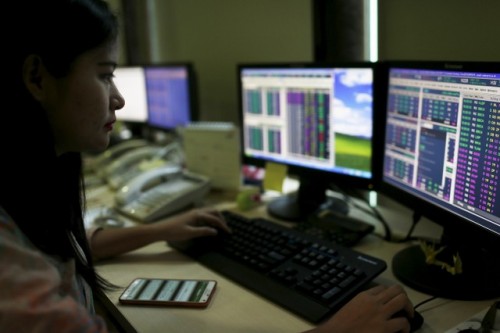
Follow us Now on Telegram ! Get daily 10 - 12 important updates on Business, Finance and Investment. Join our Telegram Channel
Snapping their four-session losing run, Indian equity benchmarks ended in green on Friday led by gains in ICICI Bank, Reliance Industries, SBI, Titan Company and HDFC. Markets made a cautious start, as India recorded 43,360 infections and 796 fatalities in the last 24 hours. In just over five weeks, from May 23 to July 1, the country reported 100,000 deaths from Covid even as the second wave waned. Sentiments remained in lackluster mood as the Financial Stability Report (FSR) released by the Reserve Bank of India (RBI) said that the gross non-performing assets (GNPAs) ratio of banks may increase to 9.8 percent by March 2022 from 7.48 percent in March 2021 under a baseline scenario. Besides, foreign institutional investors (FIIs) stood as net sellers in the capital market as they offloaded shares worth Rs 1,245.29 crore on Thursday, as per provisional exchange data.
However, late hour buying helped benchmarks to end the session near intraday high levels as traders found some solace with credit rating agency, Moody's Investors Service assessed the overall economic effect of the second wave to be softer than that during the first wave of pandemic last year, although delivery of and access to vaccines will determine the durability of recovery. Moody's expects the current lockdowns to have less of an adverse impact on economic activity than the nationwide lockdown in April 2020 because the latest restrictions have been more targeted, localised and less stringent. Some support also came with the Union Finance Minister Nirmala Sitharaman’s statement that a special session of the GST Council will be held soon to discuss all compensation-related issues. She also said that the flow of COVID-19 vaccination across the country will be well managed and all states will be taken care of.
On the global front, Asian markets closed mostly lower on Friday as investors awaited a closely watched monthly jobs report from the United States later in the day. European markets were trading mostly in green, as data from the European Union's statistics office Eurostat showed Euro zone producer prices accelerated in May, driven by a surge in energy prices. Eurostat said prices at factory gates in the 1countries sharing the euro rose 1.3% month-on-month for a 9.6% year-on-year increase. Back home, on the sectoral front, power sector stocks’ were in focus with power ministry data showing that power consumption in the country grew by nearly 10 per cent in June to 115.39 billion units (BU) compared to a year ago, but is still lower than the pre-COVID level. There was some reaction in banking stocks as the Financial Stability Report of Reserve Bank of India showed banks did not see their bad loan position worsening during the pandemic year of 2020-21 as the gross non-performing asset (GNPA) ratio stayed stable at 7.48% of the gross advances at the end of March 31. It added that The GNPA ratio of banks may rise to 9.8-11.22 percent by March 2022 under various stress scenarios due to the impact of the COVID pandemic.
Finally, the BSE Sensex rose 166.07 points or 0.32% to 52,484.67, while the CNX Nifty was up by 42.20 points or 0.27% to 15,722.20.
The BSE Sensex touched high and low of 52,527.90 and 52,177.68, respectively and there were 16 stocks advancing against 14 stocks declining on the index.
The broader indices ended in green; the BSE Mid cap index rose 0.05%, while Small cap index was up by 1.01%.
The top gaining sectoral indices on the BSE were Consumer Durables up by 1.23%, Energy up by 1.04%, Healthcare up by 0.97%, Telecom up by 0.53% and Realty up by 0.52%, while Power down by 1.29%, Metal down by 1.17%, Utilities down by 0.86%, Capital Goods down by 0.36% and Oil & Gas down by 0.33% were the top losing indices on BSE.
The top gainers on the Sensex were ICICI Bank up by 1.53%, Reliance Industries up by 1.50%, SBI up by 0.99%, Titan Company up by 0.84% and HDFC up by 0.61%. On the flip side, Tata Steel down by 2.36%, Power Grid Corporation down by 1.23%, Bajaj Auto down by 0.75%, Asian Paints down by 0.62% and Sun Pharma down by 0.58% were the top losers.
Meanwhile, the Financial Stability Report (FSR) released by the Reserve Bank of India (RBI) has said that the gross non-performing assets (GNPAs) ratio of banks may increase to 9.8 percent by March 2022 from 7.48 percent in March 2021 under a baseline scenario. Under a severe stress scenario, GNPA of banks may increase to 11.22 percent. It, however, said that banks have sufficient capital, both at the aggregate and individual level, even under stress.
The latest report said within the bank groups, public sector banks' (PSBs') GNPA ratio of 9.54 percent in March 2021 edging up to 12.52 percent by March 2022 under the baseline scenario is an improvement over earlier expectations and indicative of pandemic proofing by regulatory support. For private sector banks (PVBs) and foreign banks (FBs), the transition of the GNPA ratio from baseline to medium to severe stress is from 5.82 percent to 6.04 percent to 6.46 percent, and from 4.90 percent to 5.35 percent to 5.97 percent, respectively. Under the baseline and the two stress scenarios, the system level CRAR (capital to risk assets ratio) holds up well, moderating by 30 basis points (bps) between March 2021 and March 2022 under the baseline scenario and by 130 bps and 256 bps, respectively, under the two stress scenarios. All 46 banks would be able to maintain CRAR well above the regulatory minimum of 9 percent as of March 2022 even in the worst-case scenario.
The report further said the common equity Tier I (CET-1) capital ratio of banks may decline from 12.78 percent in March 2021 to 12.58 percent in March 2022, under the baseline scenario. It would further fall to 11.76 percent and 10.73 percent, respectively, under the medium and severe stress scenarios by March 2022. The report said COVID-19 has increased the risks to financial stability, especially when the unprecedented measures taken to mitigate the pandemic's destruction are normalised and rolled back.
The CNX Nifty traded in a range of 15,738.35 and 15,635.95 and there were 28 stocks advancing against 21 stocks declining, while 1 stock remain unchanged on the index.
The top gainers on Nifty were Divi's Lab up by 2.04%, Reliance Industries up by 1.60%, ICICI Bank up by 1.49%, Coal India up by 1.27% and Tata Consumer Products up by 1.20%. On the flip side, Tata Steel down by 2.20%, JSW Steel down by 1.24%, Britannia Industries down by 1.22%, Power Grid Corporation down by 1.21% and Grasim Industries down by 0.79% were the top losers.
European markets were trading higher; UK’s FTSE 100 increased 9.31 points or 0.13% to 7,134.47, France’s CAC increased 0.37 points or 0.01% to 6,554.19 and Germany’s DAX increased 58.61 points or 0.38% to 15,662.42.
Asian markets closed mostly lower on Friday. Chinese and Hong Kong shares dropped a day after the Chinese Communist Party marked its centenary with tough talk by Chinese President Xi Jinping. Further, spikes in coronavirus infections too adding pressure on market sentiments. Although, Japanese shares ended higher even as Japan is expected to extend by two weeks or more coronavirus containment measures in the greater Tokyo area.
Above views are of the author and not of the website kindly read disclaimer





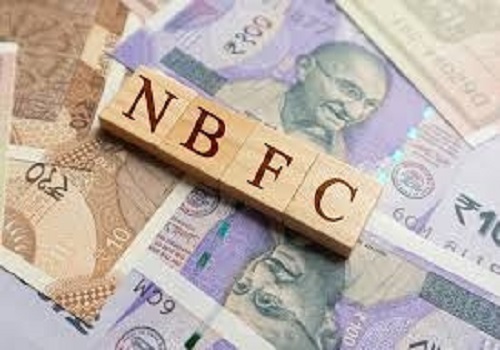




Tag News

Weekly Market Analysis : Markets strengthened recovery and gained nearly 2% in the passing w...



More News

Nifty opened with an downward gap and remained lackluster within narrow trading range throug...

